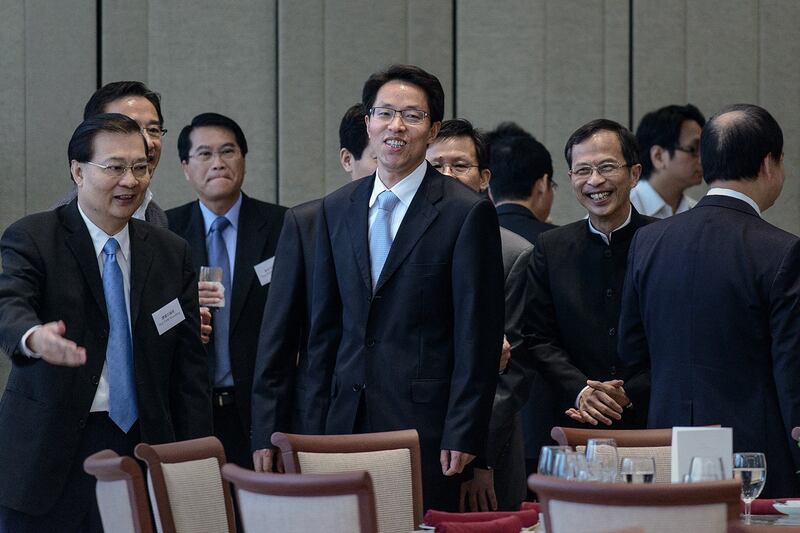Zhang Xiaoming, Beijing's outspoken former representative in Hong Kong at the time of the 2019 protest movement, has been removed from his post at a political advisory body.
While state broadcaster CCTV reported that Zhang has been removed from the post of deputy secretary general of the Chinese People's Political Consultative Conference, it was unclear whether he is accused of any wrongdoing.
State media continued on Monday to refer to Zhang as "comrade," indicating that he remains a Communist Party member.
CCTV gave no reason for Zhang's removal at the age of 61, four years short of the official retirement age of 65, and he remains a rank-and-file member of the Conference, appearing on the rostrum during Monday's opening ceremony.
Several pro-China figures in Hong Kong declined to comment on Zhang's departure when contacted by RFA Cantonese on Sunday.
However, political sources cited by the Singapore-based pro-China Lianhe Zaobao newspaper said Zhang could be on his way to another job, rather than being fired in some kind of disgrace.
China's government has removed a number of ministerial-level officials from their posts in recent months without explanation, including former foreign minister Qin Gang and former defense minister Li Shangfu.
Hardliner
In Hong Kong, Zhang is largely remembered as a hardliner who flagged a number of repressive policies shortly before they were implemented. He was apparently sidelined in favor of Xia Baolong in 2020, possibly to take the fall for the 2019 protest movement.
In 2013, Zhang said a march demanding fully democratic elections proved that the freedoms guaranteed under the handover agreement were still intact.

He made local headlines during the Occupy Central pro-democracy movement of 2014 when he seemed to minimize the importance of the civil disobedience campaign for universal suffrage, by saying: "The sun is still going to rise."
In September 2015, Zhang ruffled feathers with an early warning that the powers of the city's chief executive would always trump those of the legislature and judiciary and that the separation of powers "does not suit Hong Kong."
Limits to free speech
By 2016 he was condemning the "fishball revolution" protests in Mong Kok as being " close to terrorism," and warning that anyone who espoused independence for the city should be barred from running in elections -- a policy that was later implemented by city officials.
He also warned in the same year that there were " limits" to the free speech that Hong Kong was promised under the terms of its 1997 handover to Chinese rule.
By 2017, Zhang had been promoted to head the State Council's Hong Kong and Macao Affairs Office in Beijing, replacing Wang Guangya in the job. He was therefore the most senior Chinese government official in charge of Hong Kong affairs when the city was rocked by the anti-extradition movement, which broadened to include calls for fully democratic elections.
In 2019, he characterized the anti-extradition movement as " chaos and violence," saying it was an attempt to foment a "color revolution," or regime change, in Hong Kong.
Despite being demoted to deputy director with the appointment of Xia Baolong as director in 2020, Zhang continued to speak loudly against opposition politicians, saying they were "anti-China, disruptive elements" who should be excluded from public office, heralding changes to election rules that eliminated pro-democracy candidates from both legislative and district-level elections.
"It is only natural to demand that those who govern Hong Kong must be patriots," Zhang said, adding: "Those who oppose China in order to create chaos in Hong Kong need to get out."
Translated by Luisetta Mudie. Edited by Malcolm Foster.
